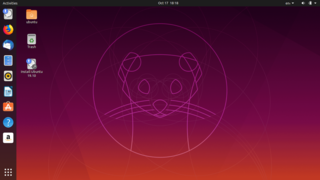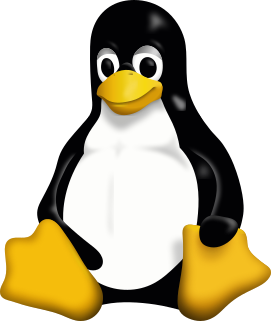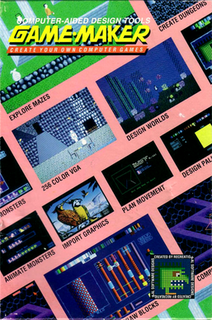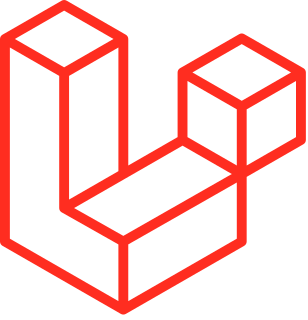Related Research Articles
Freeware is software, most often proprietary, that is distributed at no monetary cost to the end user. There is no agreed-upon set of rights, license, or EULA that defines freeware unambiguously; every publisher defines its own rules for the freeware it offers. For instance, modification, redistribution by third parties, and reverse engineering without the author's permission are permitted by some publishers but prohibited by others. Unlike with free and open-source software, which are also often distributed free of charge, the source code for freeware is typically not made available. Freeware may be intended to benefit its producer by, for example, encouraging sales of a more capable version, as in the freemium and shareware business models.

A Linux distribution is an operating system made from a software collection that is based upon the Linux kernel and, often, a package management system. Linux users usually obtain their operating system by downloading one of the Linux distributions, which are available for a wide variety of systems ranging from embedded devices and personal computers to powerful supercomputers.
Shareware is a type of proprietary software which is initially provided free of charge to users, who are allowed and encouraged to make and share copies of the program. Shareware is often offered as a download from a website or on a compact disc included with a magazine. Shareware differs from open-source software, in which the source code is available for anyone to inspect and alter; and freeware, which is software distributed at no cost to the user but without source code being made available.

MAME is a free and open-source emulator designed to recreate the hardware of arcade game systems in software on modern personal computers and other platforms. The intention is to preserve gaming history by preventing vintage games from being lost or forgotten. The aim of MAME is to be a reference to the inner workings of the emulated arcade machines; the ability to actually play the games is considered "a nice side effect". Joystiq has listed MAME as an application that every Windows and Mac gamer should have.

The GNU Project is a free software, mass collaboration project that Richard Stallman announced on September 27, 1983. Its goal is to give computer users freedom and control in their use of their computers and computing devices by collaboratively developing and publishing software that gives everyone the rights to freely run the software, copy and distribute it, study it, and modify it. GNU software grants these rights in its license.

An Internet forum, or message board, is an online discussion site where people can hold conversations in the form of posted messages. They differ from chat rooms in that messages are often longer than one line of text, and are at least temporarily archived. Also, depending on the access level of a user or the forum set-up, a posted message might need to be approved by a moderator before it becomes publicly visible.
Arch Linux is a Linux distribution for computers based on x86-64 architectures. The Arch Linux repositories contain both libre, and nonfree software, and the default Arch Linux kernel contains nonfree proprietary blobs, hence the distribution is not endorsed by the GNU project.

Jump 'n Bump is a 1998 freeware and open-source MS-DOS platform multiplayer video game by Brainchild Design.
Open-source software development is the process by which open-source software, or similar software whose source code is publicly available, is developed by an open-source software project. These are software products available with its source code under an open-source license to study, change, and improve its design. Examples of some popular open-source software products are Mozilla Firefox, Google Chromium, Android, LibreOffice and the VLC media player. Open-source software development has been a large part of the creation of the World Wide Web as we know it, with Tim Berners-Lee contributing his HTML code development as the original platform upon which the internet is now built.

Mastertronic was originally a publisher and distributor of low-cost computer game software founded in 1983. Their first games were distributed in mid-1984. At its peak the label was the dominant software publisher in the UK, a position achieved by selling cassette-based software at the GB£1.99 and £2.99 price points. As well as being an exclusive wholesaler of computer games to Woolworth's, Toys "R" Us and other leading retailers, Mastertronic sold software in outlets such as newsagents which had not been previously associated with the software market.
BioLinux is a term used in a variety of projects involved in making access to bioinformatics software on a Linux platform easier using one or more of the following methods:

Linux is a family of open source Unix-like operating systems based on the Linux kernel, an operating system kernel first released on September 17, 1991, by Linus Torvalds. Linux is typically packaged in a Linux distribution.
Abandonware is a product, typically software, ignored by its owner and manufacturer, and for which no support is available. Although such software is usually still under copyright, the owner may not be tracking copyright violations.
Proprietary software, also known as closed-source software, is a non-free computer software for which the software's publisher or another person retains intellectual property rights—usually copyright of the source code, but sometimes patent rights.

Microsoft Store is a digital distribution platform owned by Microsoft. It started as an app store for Windows 8 and Windows Server 2012 as the primary means of distributing Universal Windows Platform (UWP) apps. With Windows 10, Microsoft merged its other distribution platforms into Microsoft Store, making it a unified distribution point for apps, console games, digital music, and digital videos. E-books were included until 2019. Some content is available free of charge from the store.

Game-Maker is an MS-DOS-based suite of game design tools, accompanied by demonstration games, produced between 1991 and 1995 by the Amherst, New Hampshire based Recreational Software Designs and sold through direct mail in the US by KD Software. Game-Maker also was sold under various names by licensed distributors in the UK, Korea, and other territories including Captain GameMaker and Create Your Own Games With GameMaker!. Game-Maker is notable as one of the first complete game design packages for DOS-based PCs, for its fully mouse-driven graphical interface, and for its early support for VGA graphics, Sound Blaster sound, and full-screen four-way scrolling.

GNU Guix is a cross-platform package manager and a tool to instantiate and manage an operating system for Unix-like operating systems, based on the Nix package manager with Guile Scheme APIs and specializes in providing exclusively free software. Differing from traditional package managers, Guix utilizes a purely functional deployment model where software is installed into unique directories generated through cryptographic hashes. Dependencies from each software are included within each hash, solving the problem of dependency hell. This approach to package management promises to generate more reliable, reproducible, and portable packages.
Long-term support (LTS) is a product lifecycle management policy in which a stable release of computer software is maintained for a longer period of time than the standard edition. The term is typically reserved for open-source software, where it describes a software edition that is supported for months or years longer than the software's standard edition.

Laravel is a free, open-source PHP web framework, created by Taylor Otwell and intended for the development of web applications following the model–view–controller (MVC) architectural pattern and based on Symfony. Some of the features of Laravel are a modular packaging system with a dedicated dependency manager, different ways for accessing relational databases, utilities that aid in application deployment and maintenance, and its orientation toward syntactic sugar.
References
- ↑ Giles, Aaron. "Aaron's Computing History" . Retrieved 2006-08-07.
- ↑ "Exifer for Windows". www.friedemann-schmidt.com. Retrieved 2016-01-18.
- ↑ Torvalds, Linus. Just for Fun . New York: HarperCollins Publishers. ISBN 0-06-662072-4.
- ↑ Jump 'n Bump readme.txt JUMP 'N BUMP by Brainchild Design in 1998 Jump 'n Bump is e-mailware. That means you're supposed to send us an e-mail. Write for example where you're from and what you thought about this game. If you do that, you will greatly encourage us to make more games for you!